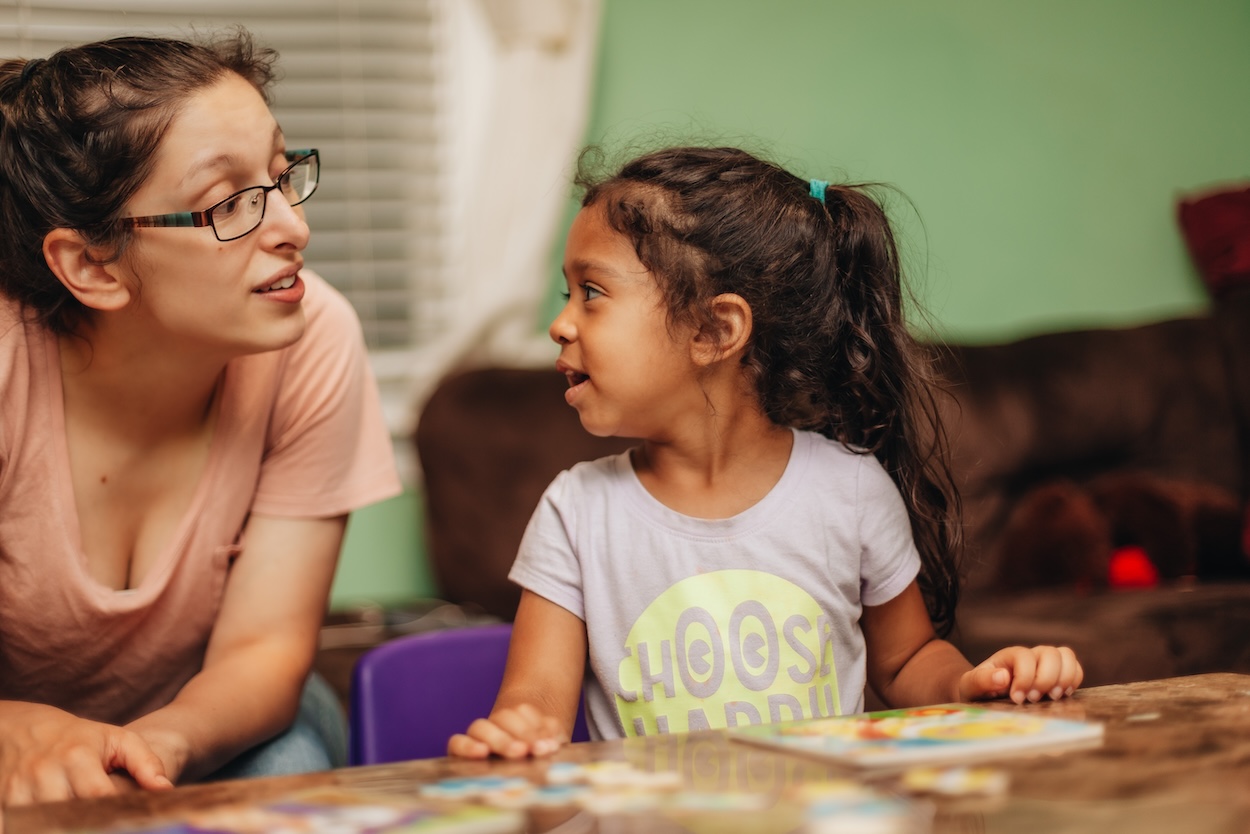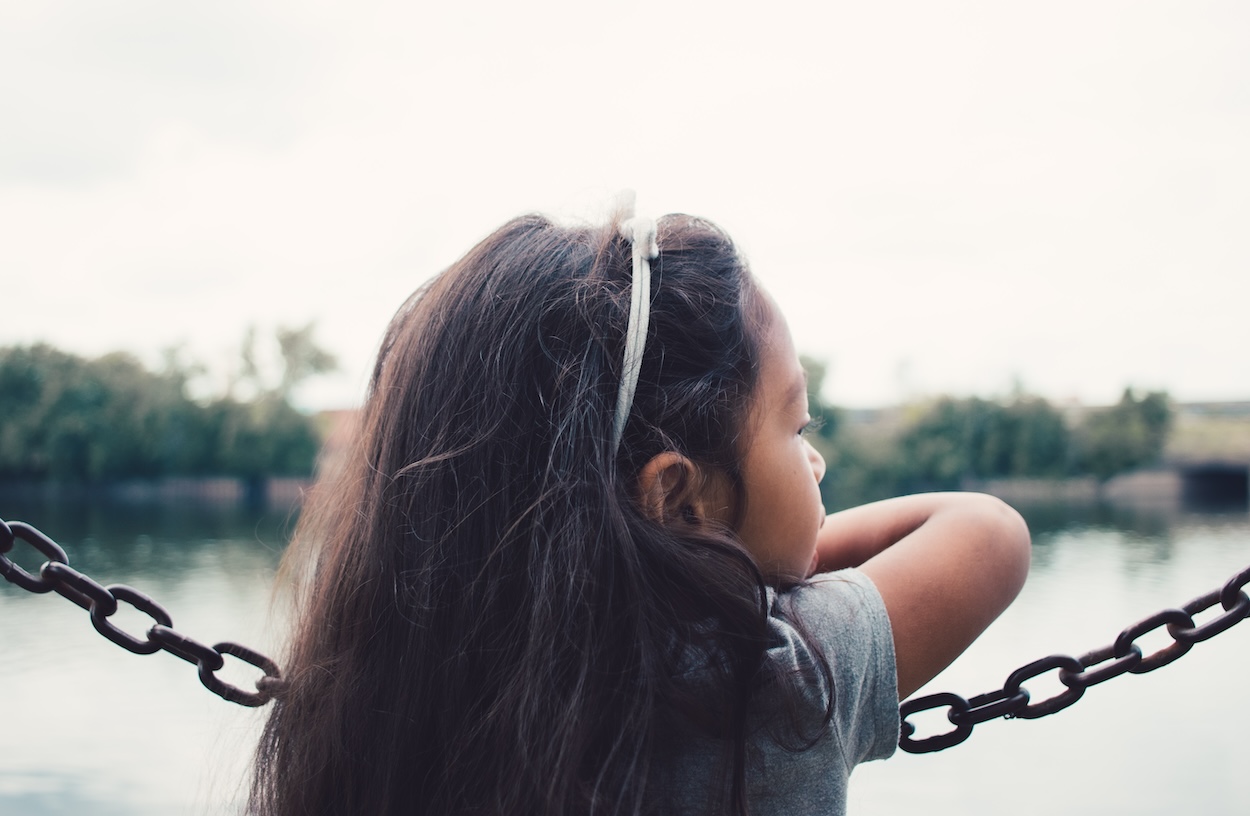
Impact
Championing the voices of children
Every year, thousands of children in New York City face life-changing decisions in Family Court — without a say in what happens to them. The Children’s Law Center (CLC), which is assigned by the court to around 300 cases every month, is the only nonprofit exclusively dedicated to representing children in custody, visitation, guardianship, and domestic violence cases in New York City.
- 5,000+ children served annually across NYC
- 135,000+ children represented since 1997
- Nine in ten clients cannot afford legal representation
- Three in four clients get their desired outcomes in court
The need for legal advocacy
Family Court decisions shape a child’s future. Yet, many children in New York face high-stakes legal battles in cases of domestic violence, guardianship, or family separation.
CLC makes sure their struggles and desires are heard in court.
84%
of families in Family Court earn less than $50,000 per year
20%
of domestic violence homicides in NYC involve a child aged 10 or younger
7,000+
guardianship petitions filed in 2023—a 100% increase since 2021
Research shows that when children are heard in legal proceedings, they feel empowered and more secure in the outcomes. CLC’s research-driven advocacy ensures that children’s voices shape Family Court decisions, following the rights outlined by the United Nations Convention on the Rights of the Child.
Children have the right to be heard, the right to protection from harm, and the right to legal fairness.
A holistic, research-driven model
CLC’s experienced and specialized attorneys and social workers work in tandem to ensure vigorous, effective legal advocacy that looks at the whole picture of a child client’s life, struggles, and specific wishes.
- High quality legal representation: Supporting our attorneys with CLC’s comprehensive resources.
- Trauma-informed Representation: Addressing the emotional and psychological impact of family conflict.
- Social work support: Ensuring children have access to mental health services, education advocacy, and housing stability.
- Legal education & policy advocacy: Training legal professionals and pushing for systemic reforms.
When children’s voices are considered in legal proceedings:
- They feel more empowered and secure in the outcome (Lundy, 2007).
- Court decisions are more in tune with their actual needs (Cashmore & Parkinson, 2009).
- They are more likely to accept legal decisions because they feel heard.
Our advocacy practice
The Children’s Law Center fights for systemic change by filing appellate briefs, training attorneys, and shaping family law policy.
- CLC attorneys provide expert testimony on Family Court issues.
- CLC performs community outreach through direct legal services.
- CLC leads working groups on child welfare matters, leading discussions and forms.
- CLC staff write law review articles and give national presentations to spread awareness.
- CLC’s Continuing Legal Education (CLE) programs train legal professionals on best practices in child advocacy.
Since its inception, CLC has filed over a thousand appellate briefs. Learn more about our advocacy practice.
Youth-led advocacy and education
Launched recently in 2024, the Children’s Voice Project (CVP) gives court-involved youth a platform to share their experiences, educate peers, and advocate for change. It’s for children, by children.
In our first year we created educational materials including brochures and activity books, distributed over a thousand copies of materials to children and families, and expanded from Brooklyn and Queens to the Bronx, thanks to new funding from the Bronx Community Foundation.
Success stories
CLC’s work transforms lives. These are real stories of children whose voices were heard—and futures changed.
Measuring our impact in 2024
In 2024, the Children’s Law Center provided holistic legal advocacy to thousands of children navigating the Family Court system, staying true to our mission to amplify children’s voices.
In 2024, we are proud of our accomplishments:
- 4,692 children represented in Family Court
- 75%+ success rate in securing positive legal outcomes
- 3,129 cases closed, with 6,662 petitions filed
- Filed 33 appellate briefs in custody and domestic violence cases
- Launched Children’s Voice Project
- Hosted 9 Continuing Legal Education (CLE) trainings
Make an Impact
Every child deserves a say in their future. With your support, CLC can continue to provide life-changing legal advocacy for thousands of children every year.



